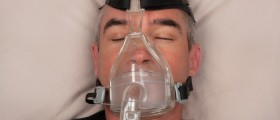
It is a well known fact that all people need sleep in order to regenerate and fill their energy levels necessary for optimal functioning. While some people need 8 hours of sleep each day others can normally function with 6 hours of sleep.
Insomnia is a sleep disorder affecting many people around the world, interfering in their sleep. Namely, people suffering from insomnia cannot fall asleep or stay asleep. If the condition lasts for certain period of time, the absence of sleep (severe sleep deprivation) starts to interfere in one's everyday activities and performance at work, school etc.
Because of all the mentioned is is essential to report sleeping issues to a health care provider as soon as they occur. The doctor will search for the underlying cause and help patients with different treatment options to overcome the illness.
What are Causes of Insomnia?
Acute insomnia may develop as a consequence of recently introduced medications or intake of some illicit drugs and stimulants. The disorder may additionally accompany some other illnesses and disorders. Scientists believe that acute insomnia may develop as a consequence of hormonal changes.
The problem is also closely connected with recent events, which may be way too exciting and positive( arrival of the baby in the family) or depressing (death of a close person, work problems, financial crisis etc.). Anxiety, fear and stress are powerful contributors to insomnia. Finally, even a sudden change in environment may be a trigger of acute insomnia.
Chronic insomnia lasts for more than a month and is associated with bad sleeping habits, environmental disturbances, drastic change in one's life, prolonged intake of certain medications, drug and alcohol abuse and finally numerous chronic physical or psychological diseases one may be suffering from.
Sleep Deprivation and Its Negative Effects
There are plenty of side effects of sleep deprivation.
In children insomnia may be responsible for imbalance of growth hormone and have detrimental consequences.
Furthermore, lack of sleep is blamed for impaired working memory and such individuals basically face difficulty when it comes to performing daily activities. There is also lack of energy, reduction in alertness and decreased cognitive performance.
Prolonged insomnia may cause intense personality changes (e.g. increased irritability, anger etc.). Inadequate functioning of the nervous system can occur in a form of hallucinations, memory loss, lack of concentration etc.
People suffering from insomnia may develop certain conditions such as high blood pressure, heart palpitations or start to feel nausea, dizziness and frequent headaches. It is also estimated that people suffering from insomnia are at higher risk for developing type 2 diabetes.
The previously mentioned are the most common side effects of sleep deprivation. In spite of being detrimental for the body themselves, these side effects also leave trace on the immune system, making one more susceptible to infections.

















Your thoughts on this
Loading...